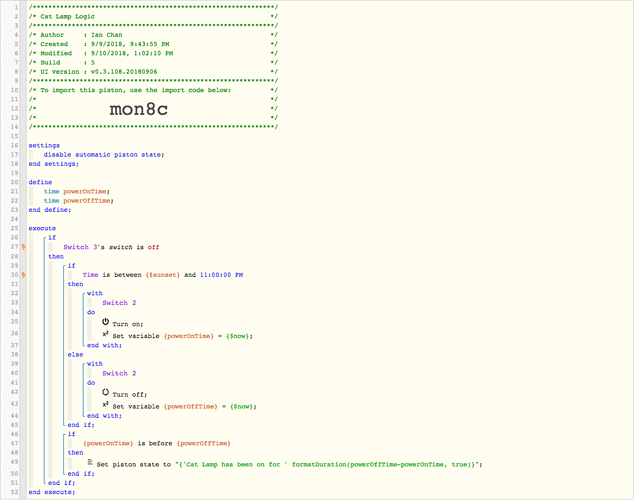1) Give a description of the problem
I want to create a start time with time variable. I want to initialize the variable to null and reset to null so I don’t need a boolean to determine if the start time is set.
2) What is the expected behavior?
I hope it can be set to null, but I don’t see information about it.
3) What is happening/not happening?
I am not sure how to debug this thing. I set to null and it does not error out.
The snapshot is the updated version that I don’t set null. However, the define time variables automatically commented for /* invalid date */. The snapshot does not show the comment but it’s in my code.
Thank you very much.

